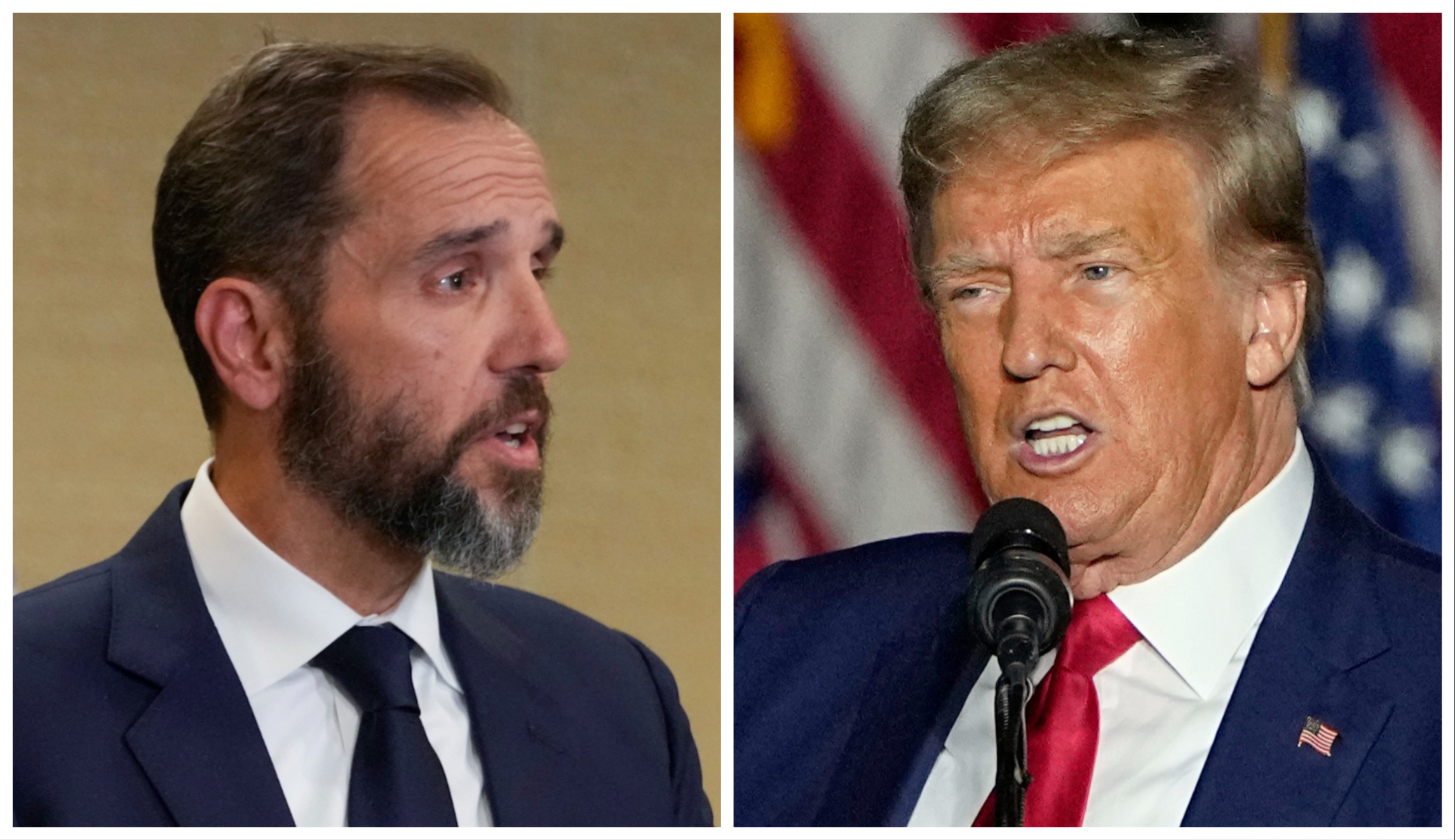Former President Donald Trump has asked a federal appeals court to lift a gag order against him in his criminal case over alleged efforts to subvert the 2020 election, vowing to take the fight to the Supreme Court if he loses yet again.
Trump has been placed under a gag order that prevents him from targeting prosecutors, court personnel, or potential witnesses using inflammatory rhetoric after special counsel Jack Smith requested one last month. On Thursday, his lawyers appealed to the U.S. Court of Appeals for the District of Columbia Circuit, arguing that the prosecution’s concern of potential threats based on Trump’s speech is “speculative.”
MAJOR DEVELOPER HALTS TWO NEW JERSEY OFFSHORE WIND PROJECTS IN BLOW TO BIDEN GOALS
“President Trump has made months of public statements about this case, but the Department of Justice submitted no evidence of any actual or imminent threat to the administration of justice. Instead, when asked about the supposed threat to the case, the prosecution admitted, ‘of course this prejudice is speculative,'” the 35-page filing reads.

Trump’s attorneys furthered that the government’s justification for the gag order, which is to diminish threats of violence and witness intimidation, amounts to a “heckler’s veto.”
“This is a classic heckler’s veto, which the First Amendment categorically forbids. Under the First Amendment, public speakers ‘are not chargeable with the danger’ that their audiences ‘might react with disorder or violence,'” Trump’s counsel added.
Trump’s appeal also marks his first formal request for the Supreme Court to step into a matter surrounding his federal criminal cases since he made history last April by becoming the first president or former president to face criminal charges. The high court in the past has veered away from taking up petitions from the former president, including an infamous denial of Texas’s attempt to challenge the 2020 election results in four battleground states.
“The Gag Order violates the First Amendment rights of President Trump and over 100 million Americans who listen to him,” his defense team added.
The former president previously sought to appeal the order before U.S. District Judge Tanya Chutkan, who temporarily relieved him in mid-October but reimposed it after several more days of considering Trump’s request.
Smith has argued that while the 2024 GOP front-runner is within his First Amendment rights to make his claims of innocence, allege the prosecution is politically motivated, and criticize the Justice Department and President Joe Biden, there is a “need to safeguard the integrity of the proceedings, including by protecting certain trial participants from intimidation, harassment, and threats.”
When Trump pleaded not guilty to four charges alleging he conspired to overturn the 2020 election back in August, he was issued conditions for release, such as no intimidation against witnesses, co-defendants, or others. Smith asked Chutkan to apply stricter consequences to the gag order on Oct. 26, citing a federal statute that includes a form of pretrial “detention” for failure to comply with the order.
While the two federal cases are still months away from jury trials, the former president’s mountain of legal woes has paved the way for spinoff legal challenges of their own, such as his battle against the limited gag order.
CLICK HERE TO READ MORE FROM THE WASHINGTON EXAMINER
Trump is also under a gag order in a separate civil trial in New York state over the attorney general’s claim that he overestimated the value of his assets to gain better insurance premiums. He has been fined $15,000 over two violations of the order there, which bars him from speaking about the judge’s court staff.
The Washington Examiner contacted the special counsel’s office for comment.
